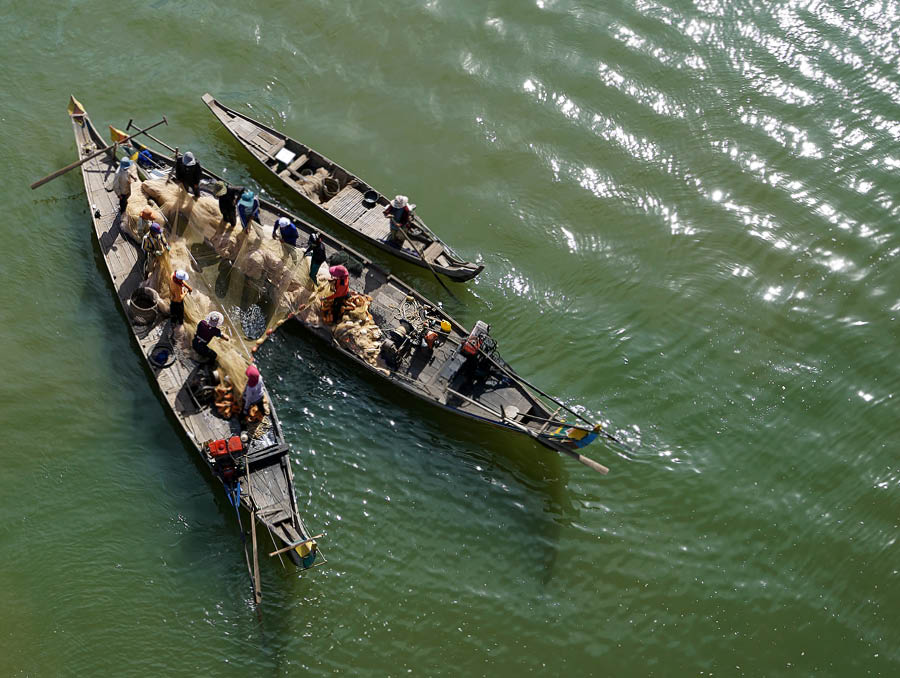Assessing the True Value of Rivers: How University of Nevada, Reno Leads in Freshwater Conservation and Natural Capital Accounting

Understanding the Significance of Rivers and Freshwater Resources
Rivers and freshwater ecosystems are vital components of the planet’s natural infrastructure. They support biodiversity, nourish agriculture, provide drinking water, enable transportation, and uphold cultural heritage. Despite their importance, the true economic, ecological, and social value of rivers often remains underestimated or overlooked in policy-making and budgeting processes.
The University of Nevada, Reno (UNR) has emerged as a leader in reevaluating how we measure and value freshwater resources. Through innovative research and international collaborations, UNR is driving a global shift toward more comprehensive accounting of rivers’ benefits, helping societies make smarter, more sustainable decisions about water management and conservation.
What Is Natural Capital and Why Does It Matter for Rivers?
The concept of natural capital refers to the stock of natural assets—such as water, wetlands, forests, and fisheries—that generate valuable ecosystem services. These services include water purification, flood control, climate regulation, cultural identity, and recreational opportunities. For rivers, natural capital encompasses both their ecological functions and the numerous benefits they provide to human communities.
In Nevada and globally, the full value of rivers remains underappreciated because many services they deliver are diffuse, intertwined, and difficult to quantify. For example, sediment transport that helps rebuild deltas or flood mitigation that protects cities are rarely accounted for in traditional economic frameworks. Recognizing and valuing these benefits is essential for ensuring the long-term sustainability of water resources.
Learnings from Local and Global Experiences in River Valuation
Within Nevada, the University of Nevada, Reno has studied the economic and cultural importance of iconic waterways like Lake Tahoe, the Truckee River, Walker River, and the Colorado River. These waters sustain billions of dollars in regional economies, support biodiversity, and preserve cultural traditions.
For example, Lake Tahoe alone anchors a $20 billion annual economy through tourism, real estate, and recreation. The Truckee River supplies about 85% of Reno-Sparks’ water, underpinning urban development and community wellbeing. Meanwhile, the Colorado River supports an estimated $1.4 trillion in basin-wide economic activity and agriculture.
Globally, the UNR-led initiative extends these insights to major rivers like the Mekong—home to over 70 million people and the largest inland fishery on Earth. The Mekong sustains diverse ecosystems, regional trade, and cultural heritage. Yet, its high ecological and economic worth is often undervalued, risking degradation and loss of livelihoods.
Advancing New Metrics for River Valuation
The UNR approach focuses on developing shared metrics that integrate monetary, ecological, and cultural indicators. This multidimensional assessment helps reveal the total value of rivers, including benefits that are hard to measure, such as cultural identity and biodiversity.
Such comprehensive valuation enables decision-makers to better understand trade-offs—for instance, balancing energy development against ecological conservation or tourism—by providing credible data on total value and risks. This is crucial in regions where rivers face pressures from climate change, pollution, dam construction, and over-extraction.
Impacts of Proper Valuation on Policy and Conservation
Accurately valuing natural capital has transformative potential. It allows governments and communities to allocate resources more effectively, prioritize conservation, and design policies that align economic growth with ecological health.
For example, recognizing the flood mitigation services of wetlands in Thailand or the fisheries of the Yangtze River can lead to investments that protect these ecosystems, thereby safeguarding livelihoods and climate resilience. Conversely, undervaluing these services has led to environmental collapses, such as the Aral Sea disaster or the destruction of mangroves for shrimp farming, which erode economic stability and cultural heritage.
Global Collaboration for Smarter Water Management
The UNR initiative is in direct collaboration with institutions like the Tahoe Institute for Global Sustainability and the University of California, Santa Barbara. Together, they are convening scientists, economists, Indigenous scholars, and community leaders to develop scalable methods for river valuation.
One such effort involves workshops and case studies focused on major transboundary rivers like the Mekong. These collaborative platforms aim to produce universally applicable valuation frameworks that inform global water policies, ensuring rivers are protected as valuable natural capital rather than commodities to be exploited.
Practical Steps Toward Real River Valuation
For policymakers, environmental groups, and community leaders, adopting holistic valuation methods involves:
- Integrating ecological and cultural metrics into economic assessments.
- Valuing ecosystem services beyond direct market goods.
- Prioritizing conservation investments that safeguard high-impact, undervalued services.
- Engaging local communities and Indigenous groups in valuation processes to incorporate traditional knowledge and cultural values.
- Using credible data to inform regional and national water policies that reflect rivers’ true worth.
Conclusion: Toward Better Stewardship of Water Resources
The work led by the University of Nevada, Reno exemplifies how advancing natural capital accounting for rivers can enhance understanding, foster better governance, and promote sustainable management of freshwater resources worldwide. Recognizing rivers’ genuine value not only benefits the environment but also sustains economies and preserves cultural identities for generations to come.
For those involved in environmental policy, community development, or water resource management, embracing these innovative valuation methods presents an opportunity to make more informed decisions—ensuring that rivers continue to support both nature and human societies effectively.
If you are interested in learning more about sustainable water management and freshwater conservation initiatives, exploring programs and research at the University of Nevada, Reno can be a valuable next step. Discover how you can contribute to protecting vital freshwater ecosystems.

